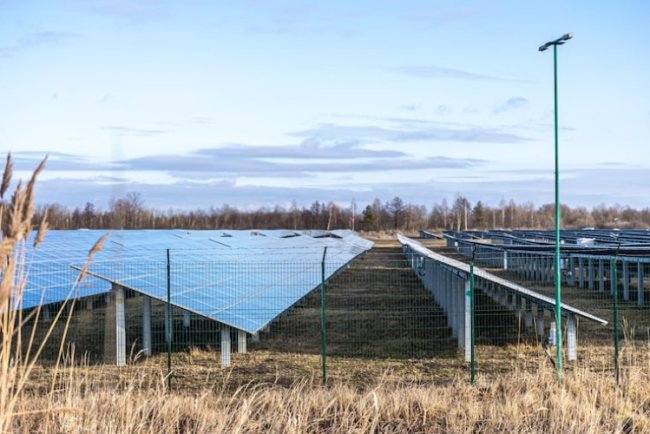India 2047 Conference Focuses On Climate Resilience
India 2047 Conference focuses on building a climate-resilient future through adaptation strategies and policy.

New Delhi will be hosting a significant four-day conference, India 2047: Building a Climate-Resilient Future, from March 19 to 22, 2025. It is being organized by the Union Ministry of Environment, Forest and Climate Change (MoEFCC) in partnership with two Harvard University institutes of stature—The Lakshmi Mittal and Family South Asia Institute and The Salata Institute for Climate and Sustainability—and the purpose of the event is to focus on major challenges in climate adaptation and resilience. Discussions will enable India's climate change response to get sharpened through well-informed policies, innovative initiatives, and field-level interventions to ensure a sustainable and climate-resilient future by the year 2047.
The conference will be opened by Shri Suman Bery, Vice Chairperson, NITI Aayog, and Shri Kirti Vardhan Singh, Union Minister of State for Environment, Forest and Climate Change. The meeting will feature an illustrious line-up of Government of India officials, research entities, private enterprise, and Harvard University. Among the leading speakers to the audience will be Prof. Tarun Khanna, Director of The Lakshmi Mittal and Family South Asia Institute and Jorge Paulo Lemann Professor at Harvard Business School; Prof. Jim Stock, Harvard University's Vice Provost for Climate and Sustainability; and Prof. Daniel P. Schrag, Professor of Environmental Science and Engineering at Harvard.
The conference will have several technical discussions and multiple breakout sessions for four days and will focus on four key themes—Climate Science and its effects on Water and Agriculture, Health, Work, and Built Environment. The themes have been deliberately chosen to capture the most significant areas of climate adaptation and resilience in India.
The Climate Science and its implications for Agriculture and Water segment will dwell on the scientific, policy, and practical implications of shifting climate patterns, such as heatwaves, erratic monsoons, and water availability problems. Specialists will examine the effects of these climate fluctuations on India's agricultural economy and water security, and look for ways to build resilience in these essential sectors.
Theme on Health will bring together prominent health experts and system specialists from across India and internationally to discuss the effects of severe heat and other climate factors on public health. As the globe warms up, heat ailments, vector-borne diseases, and challenges for health infrastructure are increasingly emerging concerns. The session will bring on board effective adaptation measures and policy responses to ensure public health resilience against climate stresses.
The impact of climate change on productivity and working conditions will be the theme of Work. Higher temperatures and climate-related extreme events are increasingly influencing workforce productivity, especially in physical labor-intensive sectors. The potential measures to minimize productivity loss and maintain worker well-being despite climate-related disturbances will be discussed here.
The theme of Built Environment will discuss ways in which city planning, infrastructure, and building practices can be modified to meet the challenges of increasing temperatures and extreme climate phenomena. With Indian cities undergoing speedy urbanization, they are specifically exposed to the threats of climate change. Designers, experts, and academics will discuss futuristic design, climate-resilient architecture, and climate-sensitive urban development strategies that can help promote long-term resilience.
Apart from these central themes, the conference will also cover cross-cutting areas like governance, traditional knowledge, livelihood and skilling, gender, and finance. These overlapping elements will create a comprehensive insight into climate resilience and ensure adaptation measures are equitable and inclusive.
A prime goal of the conference is to produce concrete outputs in the form of research papers, technical reports, and policy briefs that will provide scientific evidence to international climate efforts. The learnings and insights from these debates will play an important role in shaping India's upcoming National Adaptation Plan. Through interspersing dialogue among main stakeholders such as policymakers, scientists, industry captains, and civil society organizations, the conference will catalyze implementable solutions for creating a climate-resilient India.
The partnership with Harvard University institutes contributes a depth of academic scholarship and research-based understanding to the discussion. The Lakshmi Mittal and Family South Asia Institute, one of the premier interdisciplinary research institutes at Harvard, is committed to improving the comprehension of South Asia's key challenges within a global context. The Salata Institute for Climate and Sustainability, created in 2022, is an interdisciplinary community that drives climate research, education, and action. Since 2023, the Salata Institute has funded the South Asia Adaptation Research Cluster, an affiliation of top climate scientists, epidemiologists, and planners. This cluster is concerned with research on extreme heat effects and changing weather patterns in the Indian subcontinent, with the intent of determining at-risk populations and designing intervention approaches.
With India's centenary of independence only a generation away in 2047, the conference is a major milestone towards a climate-resilient future. Through integration of interdisciplinary collaboration, policy, and scientific innovation, the conference will be a transformational event that will set the stage for climate adaptation planning in India. The conference will ensure that India's response to climate change is informed by solid research, local solutions, and participatory decision-making.
By convening government officials, academic specialists, business leaders, and civil society groups, the conference will develop effective partnerships and knowledge exchange. The deliberations and recommendations from this event will play a vital role in informing evidence-based, actionable policies responding to India's overall development agendas while meeting the pressing imperative for climate resilience.
At a time when climate adaptation has become a topmost priority globally, India 2047: Building a Climate-Resilient Future is not merely a conference but also an imperative step to forge a future that will be sustainable for centuries to come.
What's Your Reaction?

















